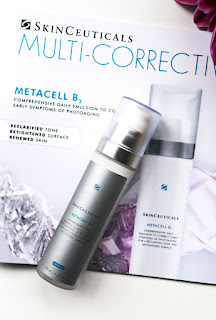Studies show that
Vitamin C can take years off your skin.
Vitamin C is a chemical called ascorbic acid that is
naturally occurring in skin. It is known to play a role in collagen production.
In addition, when topically applied it is thought to help heal acne, increase
the barrier function of skin to decrease moisture loss, protect from UV
radiation, and prevent age spots. L-ascorbic acid (vitamin C): Neutralises damaging free radicals and protects against oxidative stress.Yet despite all these wonderful benefits,
many clients will say that they don’t notice much of a difference when they use
a Vitamin C serum themselves.Why aren’t these women getting good results? Because many of the products on the market
aren’t all they’re cracked up to be.
Many Vitamin C serums
contain just one active ingredient: vitamin C. Vitamin C is great for your skin, but it works even better when it’s
combined with other skin—loving nutrients.
How to prove an anti-aging ingredient works – the Kligman
questions
1. Based on the chemistry of the ingredient, is there any
scientific mechanism that could explain why it would work?
2. Does it penetrate to the part of the skin where it needs
to be in order to work?
3. Are there peer reviewed, double blind, placebo controlled
studies demonstrating the ingredient really works when applied to real people?
This assessment is based primarily on a paper which reviews
the technical literature on Vitamin C through 2012: “Stability, transdermal
penetration and cutaneous effects of ascorbic acid and its derivatives” from
the Journal of Cosmetic Dermatology, 2012.
Is there a mechanism that explains how Vitamin C works?
Remember that unlike many other anti aging ingredients,
Vitamin C is naturally found in skin (mostly in the epidermis, some in the
dermis) and its role in skin biology is well documented. For example… Protecting from UV damage.
Although VC is NOT a sunscreen it protects skin from the free radicals that are caused by UV exposure. It’s been shown to reduce lipid peroxidation, limit the release of pro-inflammatory cytokines, protect against apoptosis (or cell death) and to reduce redox-sensitive cell signalling. All this means that VC reduces many of the nasty effects of sun exposure.
Increasing collagen to reduce wrinkles
As you know collagen reduction is a major cause of wrinkles.
Vitamin C regulates the synthesis of collagen and it does this by hydroxylating
collagen which makes it more stable and improves the way it supports the
epidermis.
Reducing skin pigmentation
Vitamin C not only reduces melanin production but it also reduces
oxidation of the melanin that is produced. It’s also thought to reverse the
conversion of DOPA to o-DOPA quinone (which is a skin pigment).
So, as you can see, the effects of VC in the skin are well
understood. Now let’s look at the other properties of each ingredient and what
kind of data is available to prove that they work.
L' Ascorbic Acid .
Is it Stable? Stable at pH less than 3.5 in aqueous solution .
- Does it penetrate? Ex vivo testing proves it penetrates as a solution or micro particles
- Does it convert to Ascorbic Acid? No conversion required.
- Protects from UV damage: Yes, human in vivo testing.
- Increases collagen synthesis: Yes, human in vivo testing.
- Reduces skin pigmentation: Yes, human in vivo testing.
So this ingredient is the gold standard for Vitamin C.
Look for products that include Vitamin C & Vitamin E, Vitamin A, Resveratrol, or
other antioxidants.
Resveratrol night time antioxidant.
Vitamin E is an
outstanding anti-ageing nutrient. It inhibits the effects of ultraviolet light,
helping to keep free radicals from damaging your skin. It also prevents
scarring, smoothes the appearance of existing wrinkles, and fights skin
inflammation.
A serum is the best way to give your skin extra protection.
Vitamin C serums are just as vulnerable to sun exposure,
pollution and environmental toxins as your skin. Always wait for a minute if possible to allow serum to absorb before adding the next layer to avoid nutralising the active ingredients.
Vitamin E works in powerful synergy with vitamin C.
Together, these antioxidant vitamins form a chemical bond that shields your
skin from the ravages of sun, smoke and air pollution. In fact, studies show
that Vitamin E turbocharges the benefits of Vitamin C.
The “B's” that boost
youthful firmness and elasticity.
Panthenol, otherwise known as Vitamin B5. B5 is a member of
the B-complex family — and one of the best vitamins for skin health.
Vitamin B5 is a natural hydrator that can moisturize, soothe
and regenerate skin. As a result, it can make dry skin smoother and more
elastic.
But that’s that all. Panthenol is also a potent natural
anti-inflammatory that eases irritation and inflammation. In fact, studies show
it can speed the healing of skin wounds by 30%.
Another powerhouse “B” is Vitamin B3, also known as
niacinamide. Vitamin B3 can help firm and reduce signs of ageing, erase skin
discoloration and revive healthy tone and texture.
B3 also reduces the breakdown of collagen…while increasing
the growth of skin-healthy fibroblasts. So it promotes overall firmness and
elasticity, too.
By the way, if you've heard that niacin can trigger redness
or a flushing sensation, don’t worry.
Niacinamide does not cause any of these effects.







No comments:
Post a Comment